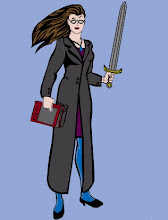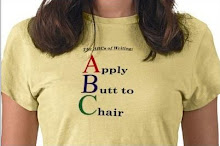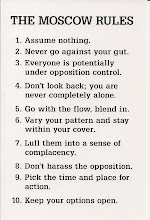I don't usually write about these things because I usually don't feel important or original enough to add anything new to the conversation; but I've seen this piece by William Cronon on the American Historical Association website in various places and can't stop thinking about the reasons that it bothers me. Perhaps the piece was the final straw of reading one too many things by academics whom I generally respect but who seem to be in a different class of historian than I am -- and by "class" I mean the academic equivalent of socioeconomic class. In any case, in his rush to admonish academic historians for being too academic -- is such hand-wringing common in other fields? -- I think Cronon seems to miss a few key points.
First, writing specialized articles or monographs for an academic audience is not in and of itself a bad thing. As a whole, all historians generate research and ideas that are used by other historians or people writing about history, including those who write for popular audiences. "Boring" work appear and enhances, synthesized, into other historians' work who may write for a wider audience in a more lively manner.
Also, define "boring." As we know from our students, "boring" can mean "I don't want to put out the effort to learn." "Boring" can mean "I have no interest in this subject at all." "Boring" can mean "I'd rather be doing something else right now." "Boring" can mean "good idea but -- oh, my god, I have to translate it into English;" and "boring" can mean "the prose is ghastly!" Boring seems a rather subjective adjective. In Cronon's case, I think that "boring" means "highly specialized language conveying complicated ideas with linguistic shortcuts for people already familiar with the subject." That's not always boring for everyone, but it might be difficult for a newcomer to the subject to comprehend with an appropriate level of ease.
Second, anyone who has had to teach in an open-admissions school knows that attempting to teach to people who barely graduated from high school at the same time as you are attempting to teach to people who could have gone to a more selective school but for other reasons, knows the perils of losing either end of the spectrum in an attempt to accommodate the needs of the other -- even when you attempt to teach to the middle. The same goes for writing. There is nothing wrong with choosing an audience and learning to write for that audience, be they other academics or the lay reader or people picking up a book-shaped souvenir with lots of images in a gift shop. Everyone cannot write for all readers, nor should they, because each audience requires something different from a writer.
Third, not all historians write for a specialized audience. Many of "us" actually do write for an audience that includes non-historians by synthesizing that "boring" work and breaking down those ideas into language that the newcomer can understand. That is both a skill and a talent that not everyone has, nor cares to develop because their focus and talents lie elsewhere. Lots of good, academic historians can and do write easily accessible articles and monographs; but just because we write does not mean that the work gets to that audience -- we build it but they don't necessarily come.
Fourth, and perhaps most importantly, Cronon leaves the publishing business entirely out of the equation. The nature of their work and their budget constraints limits their ability or desire to publicize books. Historians, with rare exceptions, do not have the enormous built-in audience that journalists or politicians bring to a publisher, so the publishers go with the journalists and politicians, not with the historian. (I refuse to consider journalists or politicians as "historians" when they write history -- they are writing history, but they don't approach the subject with the craft of the historian. They approach it as journalists reporting historians' work or as politicians manipulating information. That's not the work of historians.) Publishers who do reach big audiences also want tried and true topics like the Civil War or World War II or the Founding Fathers.
Those publishers also don't like the sort of things like footnotes and bibliographies and discursive footnotes in which we explain how we arrived at conclusions and who wrote about this subject before us and so on -- the things that demonstrate the craft of history and in which we "show our work." They also don't necessarily have a vetting process so some serious historical sins are committed in some of those books, sins that make people dedicated to good history doubt books that come from those publishers (or maybe that's just me) and not review them in scholarly publications in order to point out those sins.
At the same time, there are many good, accessible historians who write well-researched and grounded history for a wider audience and about a diverse range of topics, including those same subjects near and dear to publishers' hearts; but their work does not appear in museum bookstores, nor is it carried by bookstore chains, and you have to look for it specifically in online bookstores because it does not necessarily show up on the first page of a search for the subject. The publishers who put out these books do not have the marketing department budget to push these books to Oprah Winfrey, or the New York Times, or whatever they have to do to invest the time and money to get these books onto the reading public's radar. A historian might need their own publicist to ensure this, and who of us can really afford that publicist?
Now, don't get me wrong. I respect his work, but when I read things like this, I often feel as if the "we" invoked does not include me. Cronon and those like him were educated and work in a more rarefied environment than the ones in which I was educated and have worked. So I sometimes cringe when people in such a position use "we" because I'm not sure if they are trying to implicate me in these admonitions or if they don't include me in the "we," and I'm not sure how I feel about that. I do know that I want to say such things as "YOU -- a famous and important historian -- JUST figured this out?" Or, "maybe in YOUR world, but that's not the world I have worked in."
After all, what Cronon writes in this piece -- minus the bits about public historians -- was exactly what I heard in1986 when I entered college. I've also heard it since, all the way through grad school, among public historians, and out in the public. Throughout my education, I was a diligent if mediocre student at less than laudatory institutions, so I dealt with professors who were frustrated with where they were in their own careers and what their students were up against in the job market. The worst of those professors just wrung their hands and told us "you will never get a job, why do you bother?" Then, criticized us for wanting to know how to make ourselves competitive because non-academic jobs at specific types of schools were somehow beneath us. The best of those professors embraced conversations about writing, publishing, teaching, and alternate career paths.
Since then, I've worked on editing projects, in museums, in libraries. I've written for an academic audience and for lay readers, and dealt with publishers at both levels. I'm now writing for something in between. I've also taught at community and urban colleges. The "we" amongst whom I have worked, know that the reality is and has been more complicated than historians being too "boring," that to survive we have had to mix a bit of the "boring" with a bit of the "exciting," and that "real" historians live in a lot of different nooks and crannies of the professional world because "we" have been and are there right now.
skip to main |
skip to sidebar


Sounding my barbaric yawp, by which I mean "mostly bitching and moaning," but some history and stuff, too.
Twitter Updates
- Great adventure ends tomorrow morning. Both too long and not nearly long enough. 2 days ago
- Lesson from year: I like making myself pretty. 2 days ago
- We are gradually disposing of all of the remaining alcohol in the apartment by drinking it. 2 days ago
- Am far too happy to be returning to Burned Over District -- betrays want of gratitude. 2 days ago
Blog Archive
-
▼
2012
(35)
-
▼
April
(20)
- What I Will Remember
- A Quiz
- National Poetry Month: From the Land of the Bard
- Mother-work as Wage Labor
- This Enters the Territory of TMI
- Proposal Writing
- Another for National Poetry Month: When Lilacs Las...
- Researchintowriting
- Envy of the Novelist
- This Facebook Stuff is Disconcerting
- Bust Enhancement Diet
- Who Is This "We"?
- Peeps!
- Did You Know that Easter is This Sunday?
- Brain Ruts
- Observations on Season 5 Commentary
- Commenting
- I Have a Good Partner.
- For National Poetry Month: Canterbury
- Complaining and complaining and complaining
-
▼
April
(20)
-
►
2011
(107)
-
►
December
(11)
- More People I Don't Have to Be
- Bah Humbug and Long Live the Grinch!
- Here's Why I Haven't Bought a Blanket
- The Other Reason for Grumpiness
- Remember Reverb?
- FMGetting Prescriptions Filled Overseas
- Running About
- Guess the Season!
- Silly Lists
- NOT Olivier's Version, THANK GOODNESS!
- Hark, Patrick Pearse and John Connolly!
-
►
December
(11)








5 comments:
Hmm. I resonated with the message - my goal, like yours in your current project, is always to write so its accessible to a non-specialist. What I learned when I was in a non-traditional job was that it always felt marginal. The fact that Tony Grafton and Bill Cronon have both had to make these great speeches about inclusion speaks volumes to what they perceive as standard attitudes among historians, in spite of the many things that historians do.
As for "boring", my take is that Cronon was thinking about works where either the author is not that interested, or fails to tell us why the subject matters. And while I agree about the kind of writing historians do, there is an awful lot of contempt for those who write for the mass audience: I recently saw a comment on a Ph.D. thesis that "you should not cite a popular historian in a dissertation.". on the " boring" is that
Sorry for the wonky last sentence above.. I shouldn't write too much on my iPad.
I also feel that it's a tad anti-intellectual. I mean, historians are *creating knowledge*, not only telling stories for entertainment, and sometimes to do that we need to use technical language that can be difficult for the layman to read - but that's ok! And you're right, how many chemists or physicists worry about whether their technical conversations are meaningful outside the field?
I found Cronon's piece quite interesting. I think that some academic writers confuse under-edited prose with profound prose. Almost everyone benefits from a serious round of editing: this goes for me, too! Few scholarly editors have the time and skills to edit for expressive clarity as well as for exactitude.
That said, I don't think that 'boring' was a good word but I'm pleased that leading academic historians are showing interest in clear communication for a popular audience!
See, I think I might have found his piece more interesting until about a decade ago because it was exactly what I was being told -- which is exactly why I don't find it so interesting today. I do appreciate that he attempts to be inclusive, but the very way he constructs and addresses his argument indicates that he thinks exclusively and that he himself doesn't really consider anyone but that strata he addresses as being "real historians" -- or even what a "real historian" is. In other words, he is very much part of the problem that he trys to address. So, as the head of one of the major historial organizations, he ostensibly addresses all historians when he, in fact, actually only addresses a certain strata of those historians and leaves out the very people he wants to include rather than simply including them (since we've already included ourselves by joining said organization among many others).
I still think that he has a blind spot in leaving out publishers or, if we take if further, museum boards of trustees, funding agencies, the demands of documentary film making, and a host of other practical issues that dramatically affect the dissemination of good, well-researched and documented history. Things like publishing practices that make academic historians contemptuous of popular historians, or the reasons museums perpetuate myths that have long since been disproven or have no basis in fact, or the factors that result in appalling historical documentaries about historic UFOs (which would be fascinating if done right) -- all of the things that sacrifice the history for the prospect of a good profit and sensationalism that will bring in a large audience.
In other words, there is more going on beyond a group of historians being "boring" writers. Whereas I like that he is at least aware that there is an elitism and asks to address it, I rather hoped someone in his position would be much further along than he is.
I have to think a bit as to how take his argument forward, and all suggestions are welcome!
Post a Comment
Links to this post
Create a Link